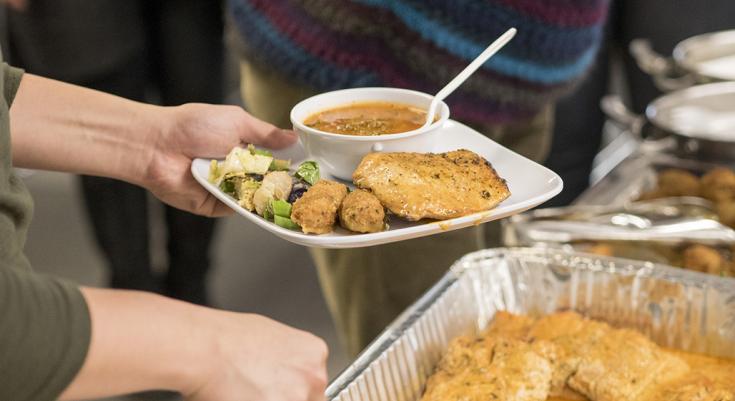
On Wednesday April 5, two dozen 4th year Faculty of Land and Food System students sat down for a delicious buffet of food cooked for them by chefs from Student Housing and Hospitality Services.
With a difference — all the food had been recovered, leftovers the students themselves had collected the day before as part of a SEEDS project. In the future, recovered food will go to the AMS Food Bank to feed students in need.
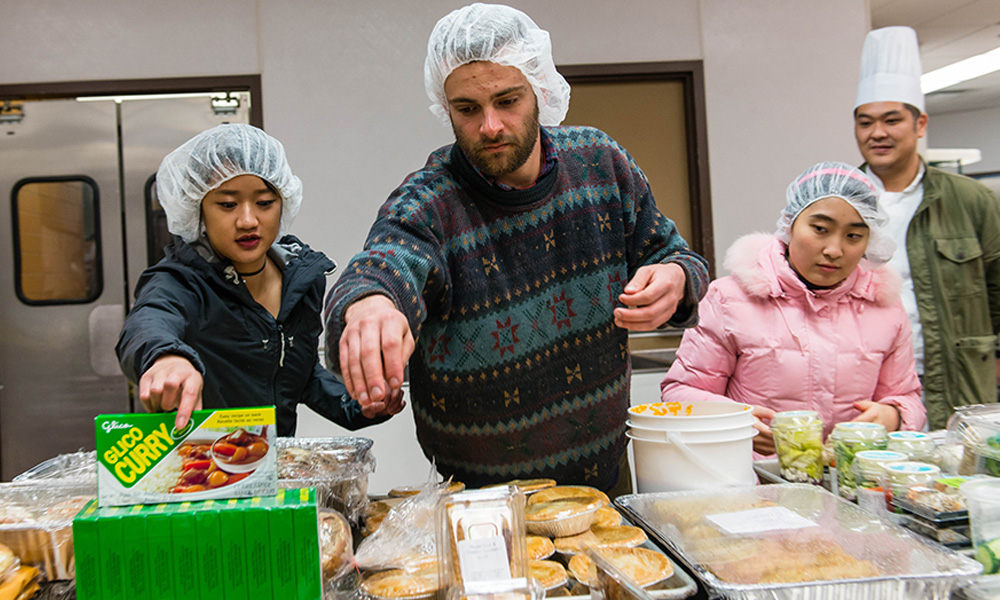
Students help Chef Chiang choose food. Photo: Paul Joseph, UBC Communications and Marketing.
Food waste is a huge issue worldwide; in Canada alone, the United Nations Food and Agriculture Organization estimates that the overall cost exceeds $100 billion every year.
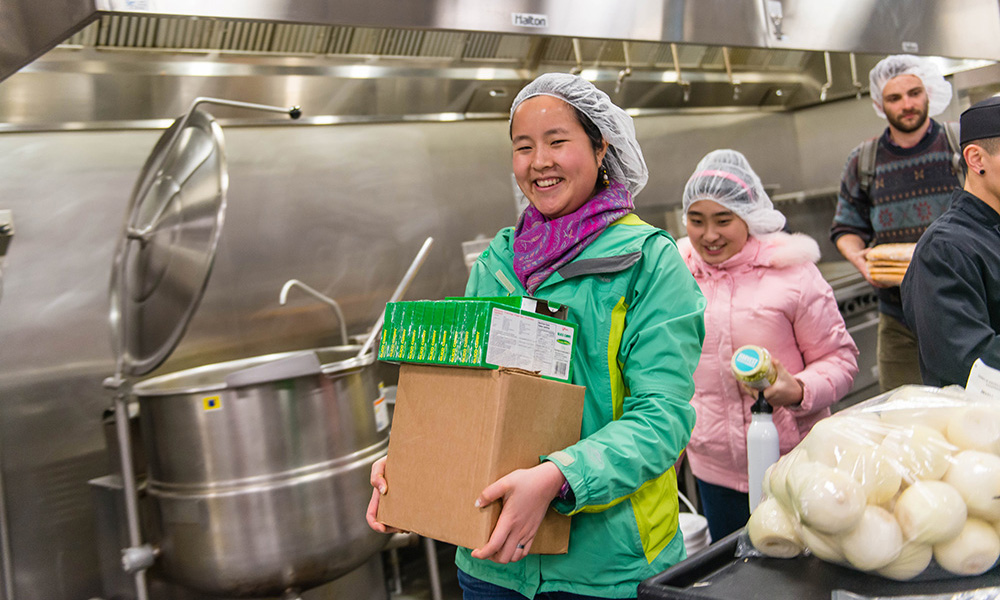
LFS450 project team picks up food. Photo: Paul Joseph, UBC Communications and Marketing.
On April 4, 2017, students from the LFS450 class helped Daniel Chiang, Executive Sous-Chef from UBC Food Services select edible food from three residence kitchens, Sage restaurant, the Point Grill and four retail outlets. They found about 20 kilos of edible food — enough for 2,100 servings — and stored enough for a class banquet overnight.
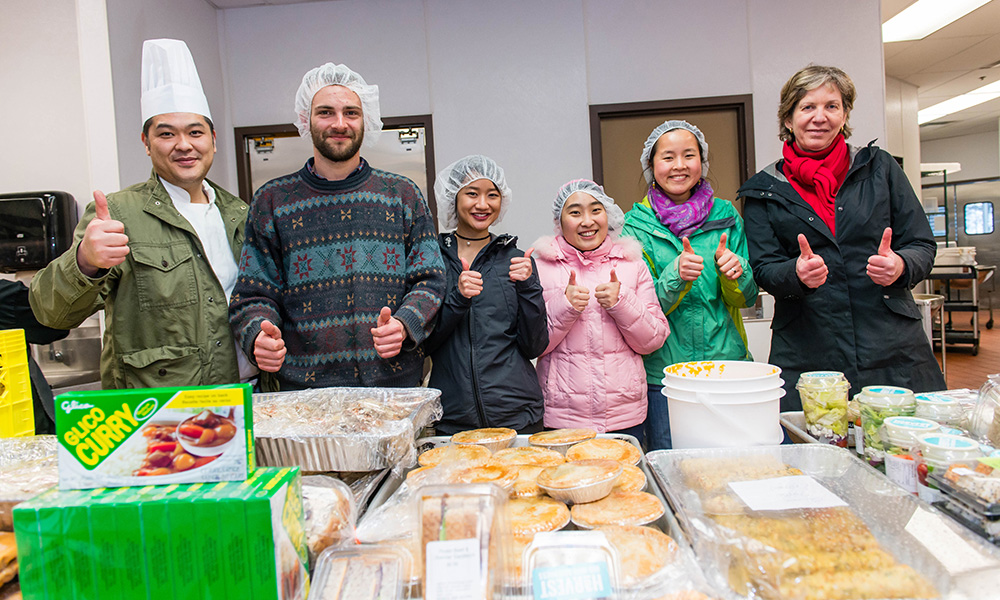
The team poses with food recovered from several UBC Food Services outlets. Photo: Paul Joseph, UBC Communications and Marketing.
This SEEDS project led to the first ever partnership between UBC Food Services and AMS Food Bank, which is now ongoing. Some of the recovered food is past its prime, but still edible. “It isn't expired from a food safety standpoint, but rather a quality control standpoint,” explains chef Chiang. “When in doubt, we don’t take a chance. We would never donate anything we wouldn’t eat ourselves.”
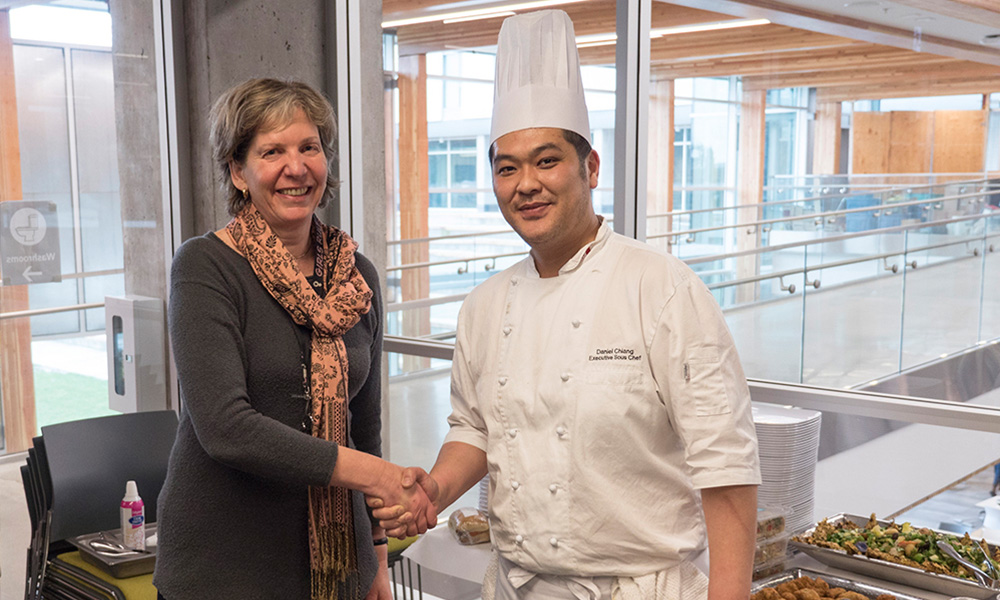
Marie-Claude Fortin , Professor, Faculty of Land and Food Systems with chef Chiang. Photo: Duncan McHugh, Land and Food Systems Learning Centre.
“UBC started with composting, which is a great beginning,” explains Marie-Claude Fortin, seen here with chef Chiang, who teaches LFS450. “Now we want to take it a couple of steps further.”
The first step is reducing waste before it’s even created; the second step is recovering any excess and passing it on, to stakeholders like the AMS Food Bank, Agape Street Mission (a UBC student club) and a third-party partner that can support larger donations.
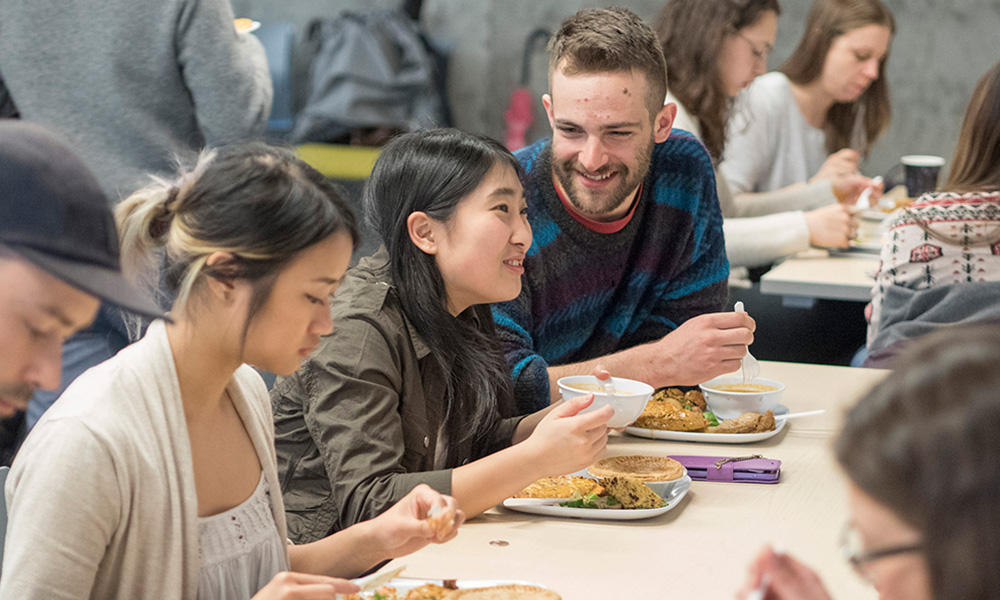
Students enjoy the banquet. Photo: Duncan McHugh, Land and Food Systems Learning Centre.
“This is a first in the history of UBC — an entire menu comprised of recovered food,” says David Speight, Executive Chef & Culinary Director at SHHS. “I am pleased that the students have been able to complete their project with a real-life experience. It’s truly an exceptional achievement.”
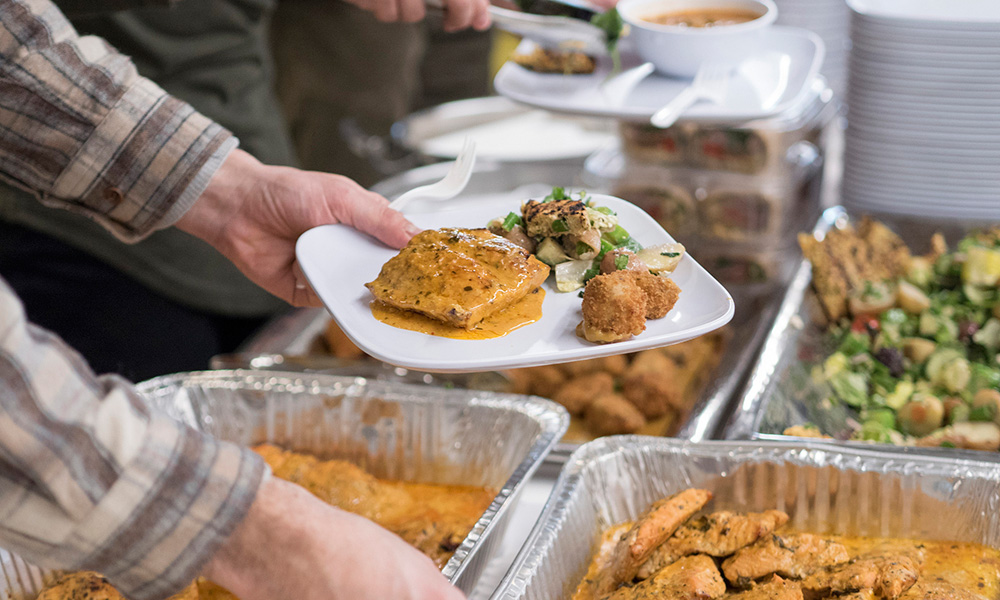
Sampling the banquet. Photo: Duncan McHugh, Faculty of Land and Food Systems.
“Food recovery matters because there are people who are food insecure and unable to afford necessities while there are tons of organizations that have an excess of food that will end up being wasted,” says Taruni Singh, Food Bank Coordinator for the AMS. “Food recovery solves the trouble of food wastage while also redirecting the food to people who need it.”
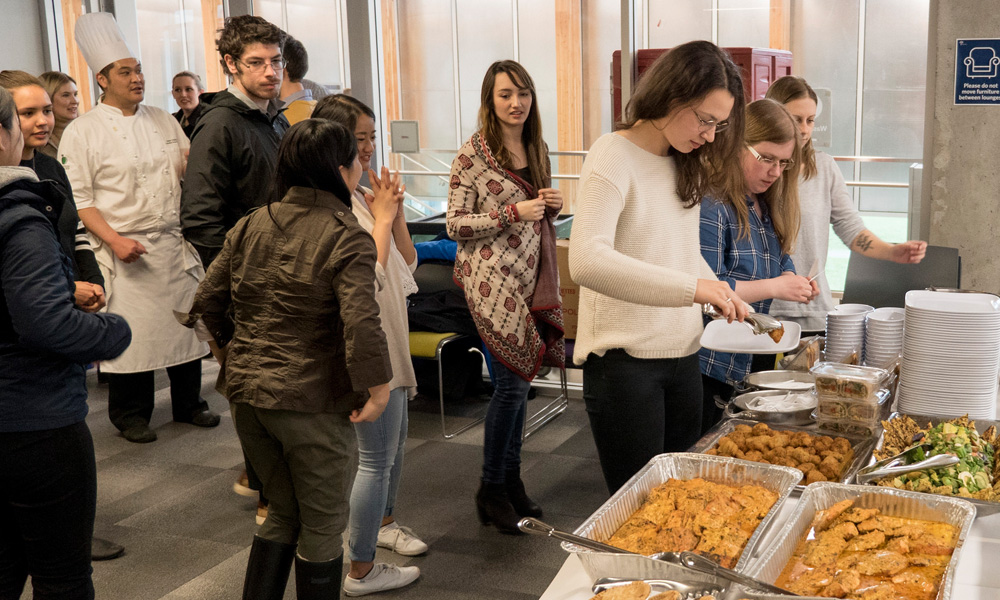
Land and Food Systems students line up for the buffet. Photo: Duncan McHugh, Land and Food Systems Learning Centre.
The next step is for UBC Food Services to develop a comprehensive food recovery strategy. To assist in that process, Fortin has asked her students to look for an app SHSS can use to post affordable recovered food on campus online. “Our goal is to have a program in place for September that won’t require ongoing micro-management and will create the framework for a long-term solution to food recovery on campus,” says Speight.